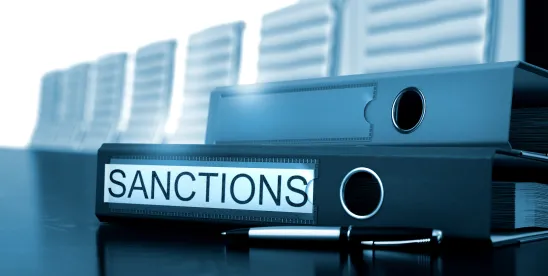In a significant shift in international policy, the United States, European Union, and United Kingdom have each taken steps to ease sanctions on Syria, aiming to support the country’s reconstruction and political transition following the fall of the Assad regime.
United States Actions
On May 23, 2025, the U.S. Department of the Treasury’s Office of Foreign Assets Control (OFAC) issued General License No. 25 (GL 25), authorizing certain transactions otherwise prohibited under the Syrian Sanctions Regulations (31 C.F.R. Part 542). That move represents a major policy shift aimed at facilitating reconstruction and humanitarian efforts in Syria.[1] In parallel, the U.S. Department of State issued a waiver of sanctions under the Caesar Syria Civilian Protection Act. Together, those developments signal a coordinated effort to promote economic stabilization while maintaining leverage over the Syrian government’s conduct.
Scope of Authorized Transactions
GL 25 authorizes U.S. persons to engage in a broad range of transactions involving Syria that were previously prohibited. Specifically, the license allows transactions that involve the Government of Syria and certain blocked persons, including individuals and entities named in the annex to GL 25, as well as entities that are owned 50 percent or more by such persons. The license covers services, investment, and dealings involving Syrian-origin petroleum and petroleum products, among other activities. Notably, this license lifts longstanding restrictions on financial transactions and investment, which could enable U.S. companies to reenter the Syrian market under certain conditions.
Concurrently Issued Measures
The easing of OFAC sanctions is part of a wider package of measures. In coordination with GL 25, the U.S. Department of State issued a 180-day waiver of certain sanctions under the Caesar Act, providing additional relief intended to stimulate activity in key sectors such as infrastructure, agriculture, and healthcare.
The Financial Crimes Enforcement Network (FinCEN) issued guidance relaxing restrictions under Section 311 of the USA PATRIOT Act, allowing U.S. financial institutions to maintain correspondent accounts for the Commercial Bank of Syria. These measures are designed to operate in tandem and provide meaningful openings for financial and commercial reengagement, subject to oversight and compliance measures.
Limitations and Conditions
Despite the breadth of the new authorizations, the relief measures are not unconditional. The U.S. government has emphasized that continued implementation of GL 25 and related actions will depend on the Syrian government’s conduct going forward. Specifically, the U.S. has tied future sanctions relief to Syria’s demonstrated commitment to protecting ethnic and religious minorities and ceasing support to designated terrorist organizations. The U.S. intends to monitor these commitments closely, and the status of GL 25 may be revisited if conditions on the ground deteriorate or if the Syrian government fails to uphold its obligations.
Export Control Considerations
Importantly, while GL 25 eases certain economic sanctions, it does not affect the application of U.S. export control restrictions over the country. Items subject to the Export Administration Regulations (EAR) generally remain prohibited for export or reexport to Syria, unless specifically authorized by the U.S. Department of Commerce’s Bureau of Industry and Security (BIS). This includes both items classified under specific Export Control Classification Numbers (ECCNs) and those designated as EAR99. Likewise, exports of U.S. Munitions List items and related defense services remain subject to the International Traffic in Arms Regulations (ITAR), administered by the U.S. Department of State’s Directorate of Defense Trade Controls (DDTC). Companies considering transactions involving Syria should therefore make sure that they obtain appropriate licenses from those agencies before exporting to Syria.
European Union Measures
On May 28, 2025, the Council of the European Union adopted a series of legal acts lifting all economic restrictive measures on Syria, with the exception of those based on security grounds.[2] This move formalizes the political decision announced on May 20, 2025, and aims to support the Syrian people in rebuilding a new, inclusive, pluralistic, and peaceful Syria.[3] As part of this approach, the Council removed 24 entities from the EU list of those subject to the freezing of funds and economic resources, including banks such as the Central Bank of Syria and companies operating in key sectors for Syria’s economic recovery. However, the EU has extended the listings of individuals and entities linked to the Assad regime until June 1, 2026, and introduced new restrictive measures under the EU Global Human Rights Sanctions Regime, targeting individuals and entities responsible for serious human rights abuses.
United Kingdom Developments
On April 24, 2025, the UK government published the Syria (Sanctions) (EU Exit) (Amendment) Regulations 2025,[4] which took effect on April 25, 2025. These regulations partially suspend a number of significant sanctions that have been in place for over a decade, reflecting developments in the political situation in Syria following the fall of the Assad regime in December 2024. The UK has lifted sanctions on several Syrian government agencies, including the Ministry of the Interior, the Ministry of Defense, and the General Intelligence Service, as well as the police, air force, military, and state-run media. Additionally, the UK has pledged up to £160 million in support for Syria in 2025, providing lifesaving assistance and supporting agriculture, livelihoods, and education programs to help Syrians rebuild their lives. The United Kingdom is expected to adopt additional legal measures to ease Syrian sanctions, mirroring recent actions by the U.S. and EU.
Implications for U.S. and International Businesses
These coordinated actions by the U.S., EU, and UK signal a new phase in international engagement with Syria, potentially opening avenues for businesses and investors. However, companies considering entry into the Syrian market would be well advised to exercise caution and conduct thorough due diligence to ensure compliance with the remaining sanctions and export control laws. Despite the easing of certain sanctions, stringent export control restrictions remain in place, and the relief measures are contingent upon the Syrian government’s commitment to safeguarding human rights and not providing safe harbor to terrorist organizations.
FOOTNOTES
[1] See OFAC’s press release available here.
[2] See Council’s Press Release, available here.
[3] See Council’s Press Release, available here.
[4] Available here.





 />i
/>i
